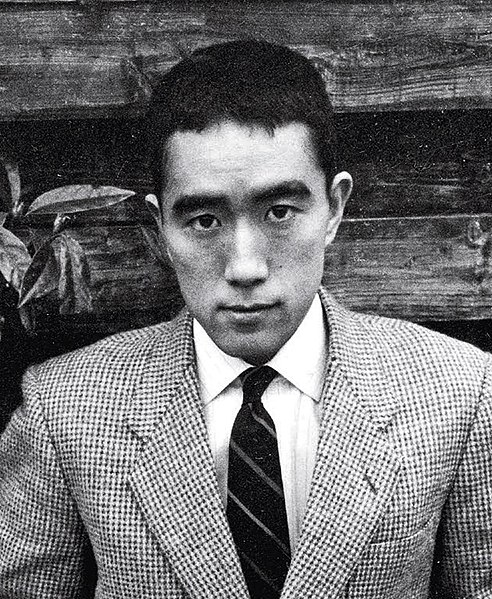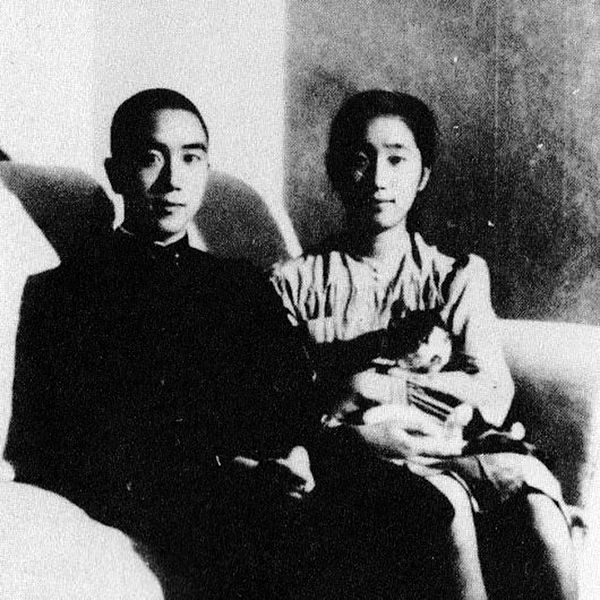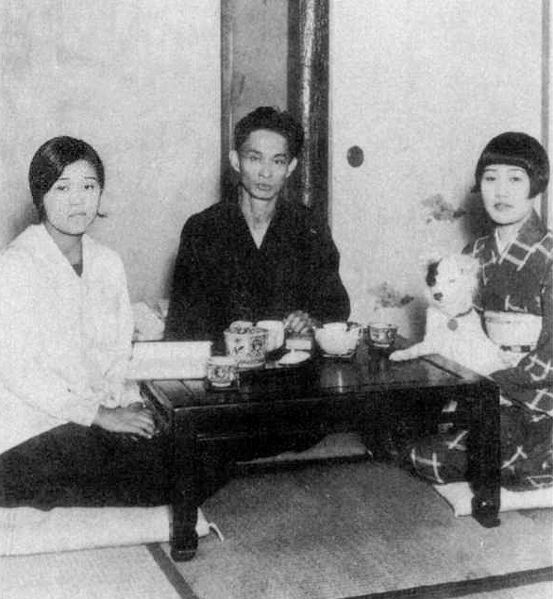Yukio Mishima , born Kimitake Hiraoka , was a Japanese author, poet, playwright, actor, model, Shintoist, nationalist, and founder of the Tatenokai . Mishima is considered one of the most important post-war stylists of the Japanese language. He was considered for the Nobel Prize in Literature five times in the 1960s—including in 1968, but that year the award went to his countryman and benefactor Yasunari Kawabata. His works include the novels Confessions of a Mask and The Temple of the Golden Pavilion, and the autobiographical essay Sun and Steel. Mishima's work is characterized by "its luxurious vocabulary and decadent metaphors, its fusion of traditional Japanese and modern Western literary styles, and its obsessive assertions of the unity of beauty, eroticism and death", according to author Andrew Rankin.
Mishima in 1955
Mishima's self-portrait drawn in junior high school
Mishima at age 19, with his sister at age 16 (on 9 September 1944)
Mishima with his cat (Asahigraph, 12 May 1948 issue). He was known as a cat lover. Yōko (his wife) was jealous of his pet cat, and disliked him petting it.
Yasunari Kawabata was a Japanese novelist and short story writer whose spare, lyrical, subtly-shaded prose works won him the 1968 Nobel Prize in Literature, the first Japanese author to receive the award. His works have enjoyed broad international appeal and are still widely read.
Kawabata at his home in Kamakura
Kawabata in 1917
Hatsuyo Itō (1906-1951), to whom Kawabata was briefly engaged in 1921. She was the unrequited love of his life and may have influenced some of his works.
Kawabata with his future wife Hideko (秀子) to his left and her younger sister Kimiko (君子) to his right (1930).








